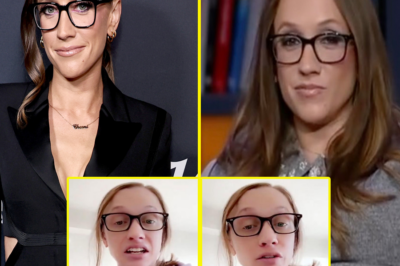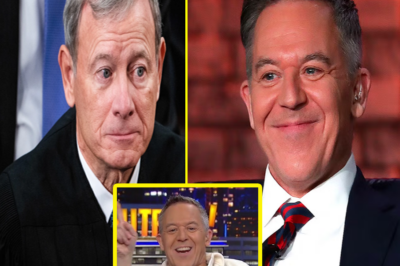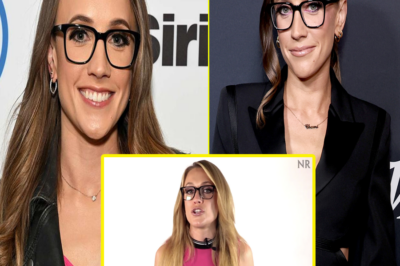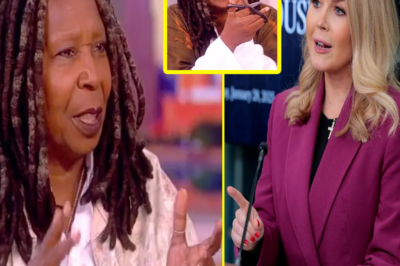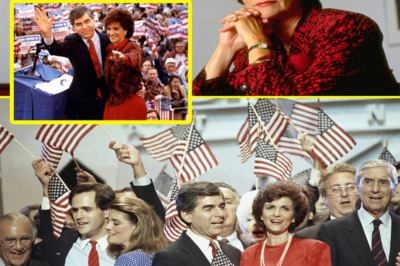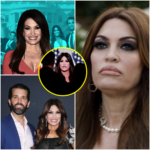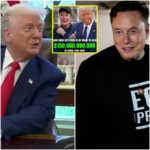The Whole Country Was Startled and Reacted Violently to Fox News Veteran Pundit Leslie Marshall, But When the Reason Was Exposed, No One Doubted It Anymore!
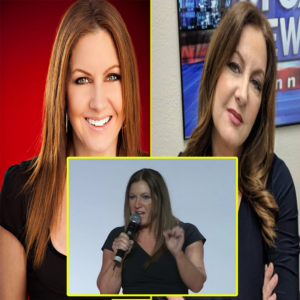
In a shocking turn of events that has left the nation in turmoil, Fox News veteran pundit Leslie Marshall’s recent comments have ignited a firestorm of reactions from all corners of the political spectrum. What began as a controversial statement has quickly spiraled into a national debate, with people reacting violently to what was perceived as an incredibly bold and polarizing opinion. But once the truth behind Marshall’s remarks was exposed, the controversy took on a new light—no one doubted the reason anymore.
The incident occurred during a live segment on Fox News, where Marshall, known for her liberal perspectives and often heated debates with conservative hosts, made an inflammatory comment about the current political climate. Marshall, as part of the ongoing discussion about political polarization in the U.S., was asked to weigh in on the recent surge of unrest in the country.
In her response, Marshall stated, “The anger and hatred we’re seeing in this country aren’t just political—they’re deeply personal. People are tired, and this is what happens when we don’t listen to each other anymore. It’s almost like we’re breeding a culture of violence, and no one seems to care.”
While the comment was meant to highlight the toxic state of national discourse, many viewers took it as a direct attack on their own beliefs and frustrations. “This is the kind of thing that makes everything worse!” one viewer tweeted in outrage. “Leslie Marshall is inciting hatred against ordinary Americans! She should be ashamed.”
The reaction was swift and intense, with both right-wing and left-wing commentators decrying Marshall’s tone and delivery. The political landscape was set ablaze, with social media filled with angry posts, protests, and calls for Marshall to be censured or removed from Fox News. “You can’t make comments like that in a country this divided,” one social media user wrote. “This is what’s wrong with the media—instigating division and hatred.”
As the backlash continued to grow, Marshall’s team worked to clarify her statement, but the damage was done. For days, her name remained at the center of the national conversation. Then, as the situation became more heated, a startling revelation came to light that shifted the narrative entirely.
It was exposed that Marshall’s comments were made after receiving some deeply upsetting personal messages and threats. “I’ve had to deal with a lot of things behind the scenes, and I’ve had my own experiences with hate and vitriol,” Marshall explained in a follow-up statement. “The point I was trying to make is that this culture of hatred and fear is destroying us, and we need to find a way to come together. But, yes, it’s hard to do that when you’re facing constant personal attacks.”
This revelation changed the conversation entirely. While many initially saw Marshall’s remarks as overly harsh and dismissive of the struggles faced by those who feel unheard, once the true context of her experience came to light, people began to sympathize with her. It was clear that Marshall had been personally affected by the same environment of anger and division that she was calling out on national television.
Marshall’s past as a public figure and her history of advocating for civil discourse made it difficult for many to doubt her intentions. “Leslie Marshall has been a vocal proponent of unity for years. This attack on her, given what she’s gone through, just makes it worse,” said a political analyst. “Now, it’s clear her message was a cry for help—a call for people to reflect on how we’re treating one another.”
Despite the overwhelming response to Marshall’s revelation, the incident has sparked broader discussions about the role of public figures in shaping national conversations. Many have pointed out how the media often disregards the emotional toll that comes with public life, especially when personal attacks and hate are involved.
In the end, Marshall’s comments have served as a stark reminder of the consequences of divisive rhetoric, and the need for genuine, empathetic conversation in an increasingly polarized society. As the dust settles, it’s clear that no one can underestimate the depth of personal experience behind the words spoken by those who are often in the spotlight. For now, Marshall’s message seems to have left an indelible mark on the national conversation about hate, fear, and how we can rebuild the discourse.
This article is designed to spark conversation and reflection on the impact of Leslie Marshall’s remarks, exploring how personal experiences can shape public commentary and influence national discourse. It encourages readers to reconsider the broader implications of media and political discussions in the current climate.
News
Fox Co-Host Kat Timpf on Why Everything is Funny, Even When You’re Diagnosed with Cancer
Fox Co-Host Kat Timpf on Why Everything is Funny, Even When You’re Diagnosed with Cancer In a world where headlines…
Fox News Host Greg Gutfeld Makes a Three-Word Demand to John Roberts – “I Want Answers!” 🔥
Fox News Host Greg Gutfeld Makes a Three-Word Demand to John Roberts – “I Want Answers!” 🔥 In a fiery…
KAT TIMPF’S 2025 NET WORTH REVEALED – How Her Husband’s Military Past Made Millions
KAT TIMPF’S 2025 NET WORTH REVEALED – How Her Husband’s Military Past Made Millions! 🪖 Fox News Star’s Fortune Unveiled!…
KAT TIMPF FIGHTS BACK – Shuts Down Health Rumors as Due Date Passes! 🩺 Fox News Star Sets the Record Straight! 🔥
KAT TIMPF FIGHTS BACK – Shuts Down Health Rumors as Due Date Passes! 🩺 Fox News Star Sets the Record…
Whoopi Goldberg Issues Challenge to Karoline Leavitt After Being Forced Off “The View” Set — Tensions Explode On and Off Camera
Whoopi Goldberg Issues Challenge to Karoline Leavitt After Being Forced Off “The View” Set — Tensions Explode On and Off…
“You may not know this secret about the wife of the former governor and presidential candidate for over 60 years.”
💥”You may not know this secret about the wife of the former governor and presidential candidate for over 60 years.”…
End of content
No more pages to load

